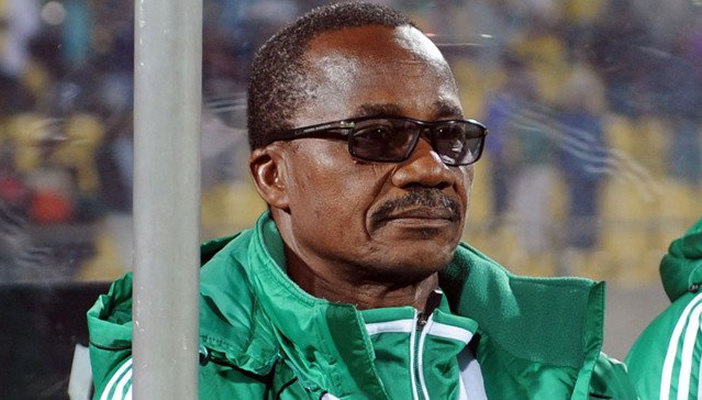Former Super Eagles defender and 1980 Africa Cup of Nations winner, Kadiri Ikhana, is currently in critical condition and receiving emergency medical treatment at the Irrua Specialist Teaching Hospital in Auchi, Edo State.
The 68-year-old football legend, popularly known as Kawawa, was transferred to the specialist hospital for urgent blood transfusion and intensive care after his health reportedly deteriorated significantly.
News of his condition was confirmed on Monday morning by former Nigerian captain, Segun Odegbami, who expressed deep concern over Ikhana’s worsening state and called for public support.
Austin Braimoh, the immediate past Chairman of the South South Police Service Commission, has been footing the mounting medical bills to help sustain the life of the ailing icon.
Ikhana, a vital member of Nigeria’s Green Eagles squad that won the country’s first Africa Cup of Nations title in 1980, was a standout defender during Nigeria’s football golden years in the late 1970s and early 1980s. He featured prominently for Bendel Insurance FC before his rise to national team stardom.
After retiring from playing, he transitioned into coaching and carved a legacy as one of Nigeria’s most successful local coaches. He won multiple domestic trophies, mentored young talents and was widely respected for his tactical brilliance and leadership on the sidelines.
In recognition of his service to Nigerian football, Ikhana was honoured with the national award of Member of the Order of the Niger and was also an ambassador for Air Peace.
The alarming state of his health has once again brought to light the long-standing issue of poor welfare for Nigeria’s retired sports heroes. His case comes just two weeks after the death of former Super Eagles goalkeeper Peter Rufai, who passed away at the age of 61 after a brief illness.
There is growing concern within the football community over the recurring cases of neglect and the absence of an efficient healthcare or pension scheme for former athletes who brought pride and honour to the country.
Ikhana’s situation has prompted calls for immediate intervention, not just to save his life, but to spark real conversation and policy change around how Nigeria treats its retired sports icons.

